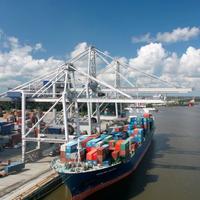Commercial Court Practice upon Ship Arrest in Ukraine

Having studied the Ukrainian court practice regarding ship arrest, we have detected issues of correction and legal gaps the judges faced during proceedings and proposed the possible ways of settlement.
Procedure on ship arrest in Ukraine is governed by the Commercial Procedural Code of Ukraine, the Merchant Shipping Code of Ukraine and the 1952 International Convention for the unification of certain rules relating to the arrest of sea-going ships of 1952, which came in force for Ukraine in 16 May 2012 (further - the Convention).
Apart from the legislative acts of Ukraine, the parties to a dispute shall be governed by provisions of the Letters of Recommendation and Explanations of the Supreme Commercial Court of Ukraine on the general matters of taking security measures under commercial proceedings.
Analysis of the court practice shows that the Ukrainian commercial courts mostly follow the same principles and reasoning when deciding upon application on ship arrest. The Ukrainian legal system is based on continental law, but there are still some ambiguities and difficulties the court faces when considering each individual ship arrest case.
For the purpose of uniform judicial interpretation and understanding of law provisions governing the procedures and grounds for ship arrest in Ukraine, special attention should be drawn to the main goal of ship arrest mechanism under the Convention and the Merchant Shipping Code of Ukraine. Both instruments facilitate ship arrest on the grounds of maritime claim as creditor’s lawful claim security against shipowners or charterers liable under maritime claim. Ship arrest shall be performed, by means of procedures stipulated by the national legislation, within the shortest period, as security of dispute settlement by the least onerous method as per temporal or material criteria.
Definition of the Term “Ship Arrest”
In practice, the Ukrainian commercial courts deciding upon ship arrest face a problem related to the definition of the term “ship arrest”.
For instance, the Odesa Region Commercial Court in case No. 916/2026/15, having considered the application on taking security measures in the form of ship arrest by means of her prohibition to leave the port, came to conclusion that the filed claim was deemed as a claim on prohibition to commit certain actions, but not as ship arrest. The Odesa Region Commercial Court made the same conclusion in respect of similar issue in case No. 916/660/15.
It is reasonable to study how the term “ship arrest” is defined by the Ukrainian legislation.
According to Article 1 of the Convention, "arrest" means the detention of a ship by court as a maritime claim security but does not include the seizure of a ship in execution or satisfaction of a judgment.
The Merchant Shipping Code of Ukraine has the similar definition. Ship arrest means any detention of a vessel or limitation of its movement carried out for the purposes of satisfaction of marine claims specified in Article 42 of the present Code.
The Commercial Procedural Code of Ukraine governs but does not defines the concept of arrest, while Article 57 of the Law of Ukraine “On Executive Proceedings” provides the term of “arrest” as prohibition to use or to dispose of property.
Article 19 of the Law of Ukraine “On International Treaties” says also that if duly ratified international treaty of Ukraine contains other rules than relevant national legal act of Ukraine, then rules of the respective international treaty should be applied.
With regards to above, to provide equal and correct application of the procedural provisions by Ukrainian commercial courts in the disputes regarding ship arrest, courts shall apply clear and unambiguous conventional definition having in such cases a priority over other general definitions of property arrest.
Arrest of Foreign Ship under the Merchant Shipping Code of Ukraine
When considering applications on ship arrest, commercial courts, with reference to Article 14 of the Merchant Shipping Code of Ukraine, declare on impossibility to arrest a ship other than the one registered in Ukraine. But after stating the fact of ship registration in the foreign state courts fail to study, whether such state is a member to the Convention.
This fact is important for settlement of the issue concerning application of Article 8 of the Convention, which inter alia provides that a ship flying the flag of a non-Contracting State may be arrested in the jurisdiction of any Contracting State in respect of any of the maritime claims enumerated in Article 1 or of any other claim for which the law of the Contracting State permits arrest. Having joined the Convention, Ukraine made no reservation to the above provision.
After statement that the flag state is not a member to the Convention the commercial court is free to apply either Article 1 of the Convention or, using similar law provisions, respectively, Articles 41-43 of the Merchant Shipping Code of Ukraine as well as other claims.
Expediency of such issue concerns difference in the lists of circumstances treated as maritime claims by the Convention and by the Code. The Merchant Shipping Code of Ukraine incorporates the larger list of maritime claims, including those specified by the International Convention on the Arrest of Ships of 1999.
Ship Arrest Jurisdiction of the Ukrainian Courts
Analysis shows that Ukrainian commercial courts, while considering the possibility of a ship arrest, settle the issue of jurisdiction to decide on the merits.
The Odesa Region Commercial Court in case No. 916/1509/15-г rejected satisfaction of the application on security measures, since the contract contained an arbitration clause providing jurisdiction of the London arbitration according to GAFTA 125.
For correct settlement of such dispute commercial courts shall bear in mind that possibility of case consideration by the Ukrainian commercial court shall be grounded not only on contractual arbitration clause but also on the national legislation of Ukraine.
National legislation of Ukraine governing the aforesaid issue includes the Law of Ukraine “On International Commercial Arbitration”. Pursuant to its Article 8, the court in which an action is brought in a matter which is the subject of an arbitration agreement shall, if any of the parties so requests, not later than when submitting his first statement on the substance of the dispute, stay its proceedings and refer the parties to arbitration unless it finds that the agreement is null and void, inoperative or incapable of being performed.
Similar approach to settlement of this issue is provided by explanations of the Supreme Commercial Court of Ukraine.
The conclusion is that the Ukrainian current legislation expressly stipulates commercial courts jurisdiction in respect of such disputes until defendant opposes in due course. Otherwise, the court proceedings shall be initiated.
Article 7 of the Convention provides also that the Courts of the country in which the arrest was made shall have jurisdiction to determine the case upon its merits if the domestic law of the country in which the arrest is made gives jurisdiction to such Courts, or in any cases stated therein.
As per Article 76 of the Law of Ukraine “On International Private Law”, courts may accept and consider any cases with foreign elements involved including when its movable or immovable property being subject to withdrawal is located in Ukraine. In addition, Article 16 of the Commercial Procedural Code of Ukraine expressly determines that requests on ship arrest shall be decided by the courts of the region of the sea port where the ship called or is registered.
It is reasonable to determine territorial jurisdiction of such category of disputes by commercial courts, in particular, under location of such property as the ship, which maritime claim security may be satisfied.










